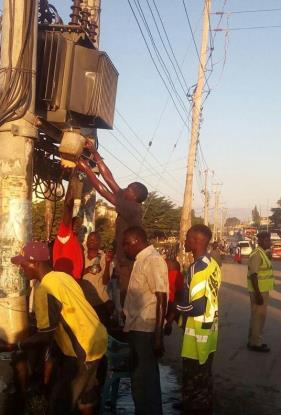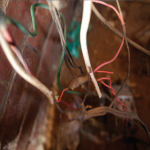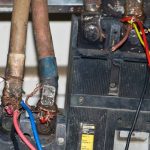Electricity safety tips
What is Eskom Public Safety and why is it important to Eskom?
Public safety video clips
Eskom Public Safety: Youth
Eskom Public Safety
Exposed Cables
Illegal Connections
Vandalised equipment
Exterior overload
Sub-standard wiring
Sub-standard wiring
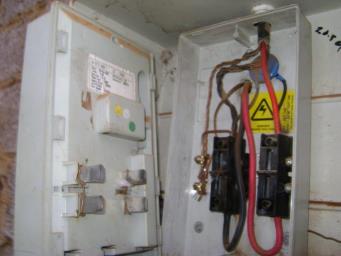
Overloading plugs
Overloading plugs
Overloading plugs: When you have limited plug points and connect multiple appliances – like your TV, kettle and stove – to one plug, you are overloading the plug, which is highly dangerous. The single plug has a limited power supply and will have to supply more current than it is rated for to run all the appliances plugged in to it. When this happens, your power supply could be cut.
Also, when the appliances run for a long time on the single socket, they can overheat and cause a fire or shock anyone who touches them.
To be safe from any danger, use a multi-plug adaptor but do not use all the appliances at the same time. The safest solution is to get your local trained electrician to install more plug points in your home.
Safety tips:
- Never use an extension cord while it is twisted (coiled) as it can overheat and cause a fire.
- Never pull a plug out by the cord as it can damage it or expose wires, which can be dangerous. Pull it out by gripping the plug itself and make sure the power is switched off first.
- Never connect multiple appliances to a single plug point.
- Never put electrical wires directly into a wall plug socket as this can shock you.
- Only use SABS approved plugs, extension leads and multi-plugs.
- Switch off at the wall socket, before pulling the plug out.
- Do not stick fingers into plug sockets.
- If there are babies in the house, ensure that wall sockets are covered with a safety cap, keeping the area safe for babies to play in.
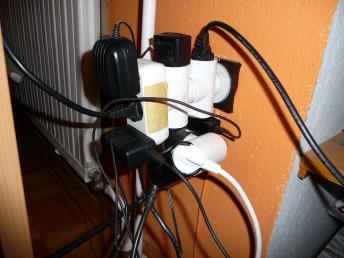
Repurposing of appliances
Repurposing of appliances
Safety tips
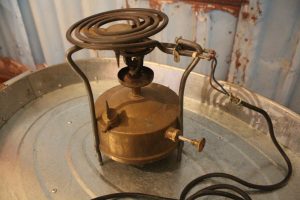
Illegal connections
Illegal connections
Illegal connections: An electricity connection is considered illegal when it is made to the Eskom network without Eskom’s permission. Examples are connecting to a mini-substation or overhead pole. Doing this poses great risk as it overloads the system, which often causes the power connection to trip or fail, meaning no one in the area would have electricity. It can also cause a fire.
Another problem with illegal connections is that when Eskom does electricity connections in your community, they look at how much electricity is needed by the number of homes and a certain number of people per home in the area. When you connect illegally, you draw from the same equipment which was meant for a certain number of households, resulting in the equipment being overloaded and the system failing/tripping.
Illegal connections can also cause electrocution because such connections are usually unsafely constructed and don’t have the required electrical protection.
Too often, innocent people lose their lives due to illegal connections. The saddest and most concerning part for Eskom is that it is often children who are electrocuted when they unwittingly touch carelessly laid (and totally unsafe) cables left by those who steal electricity.
Illegal connections are not safe as they are usually done by unqualified people who not only risk electrocuting themselves, but also expose other people to danger and the risk of injury and death if they make contact with the connection. Not only is this dangerous for the individual making the connection, but it also puts the rest of the community at risk because these connections lie across pathways and walkways where anyone passing by can easily be electrocuted. An additional risk is that illegally connected wires can also make contact with other items such as roofs, gutters, and washing lines, making these items live and able to conduct electricity.
Safety tips
What does it look like?
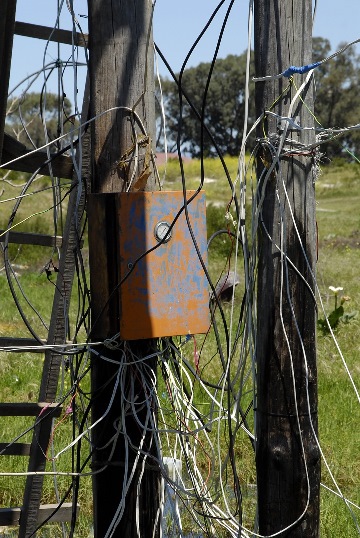
Exposed cables
Exposed Cables
It is unsafe to place/run electrical cables and extension cords on the floor or under carpets. Electrical cables are supposed to be out of reach of people or animals as constant contact with them will make them a fire threat and cause harm to people who might trip over them. If you have cables running on the ground, get your local qualified electrician who uses the correct tools to make sure all your electricity cords are secure and safe.
Running cables under carpets is also dangerous as you are not able to see if the cord is damaged. Should the cord be damaged, it could create a fire as carpets are made of materials which could easily catch fire.
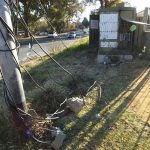
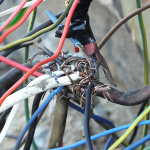
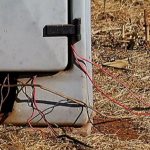
What does it look like?
Safety tips
- Get your local qualified electrician to install a plug point closer to the appliance so there isn’t a need for an extension cord.
- If you have a need for an extension cord before the electrician comes to install a plug point, don’t run it under carpets. Rather run the cabling over the carpet (and preferably along a wall) and secure it with tape to prevent tripping.
- Keep cords away from hot stoves and other hot surfaces.
Low-hanging cables
Long-hanging cables
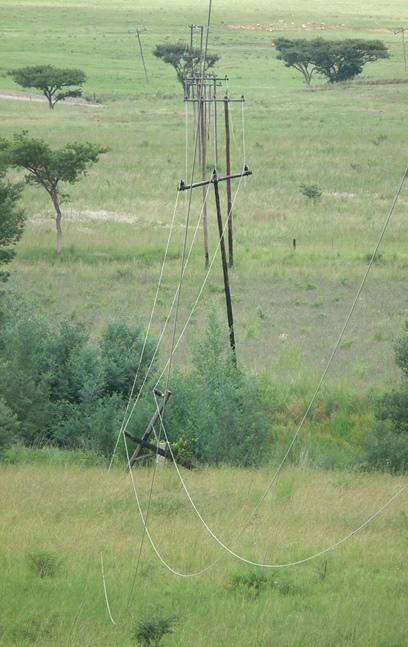
Meter tampering
Meter Tampering
Safety Tips
Never tamper with any Eskom equipment as only authorised Eskom personnel may do so.
If you see/know of any instances of meter tampering, report them to Eskom immediately on 08600 37566 (ESKOM). Educate your children about this as well.
What does it look like?
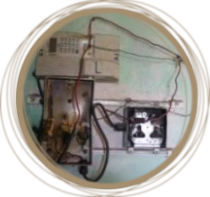
Transformer oil theft
What does it look like?
Transformer oil theft
People often steal oil from transformers at substations or on the network, which they use to fuel cars or other equipment. Some people even use this transformer oil for cooking, which is a serious health risk as it is a fuel oil and not a cooking oil. They break open the transformer – which is an act of vandalism – before using a tool such as a hosepipe to draw the oil.
This is illegal and will get you into trouble when you are caught. It also damages the equipment because when the oil is drained from the transformer, it will break down as it cannot function without the oil. Because of this, the area which the sub-station supplies electricity to, will be without power.
This also results in a risk of electrocution to the person performing the theft and to passers-by, since live electrical.
Safety tips
- Stay away from sub-stations.
- Educate your children about this as well.
